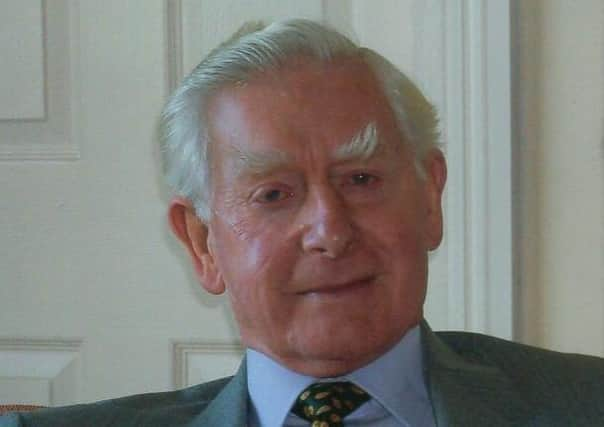Nuclear test veteran backs campaign for medals


As reported in the national press, an advisory military sub-committee determined at the end of last year that veterans of the nuclear testing programme, between the 1950s and 1990s, would not be entitled to ‘medallic recognition’.
The committee justified its decision on the grounds that “although the efforts of those involved in the campaigns should not be discounted, the cases did not meet the level of risk and rigour which is generally required for the award of a campaign medal.”
Advertisement
Advertisement
The decision led to outcry amongst the 1,500 surviving nuclear veterans in the UK, many of whom did indeed risk their health and their life – and 89-year-old Bill Evans, who lives in Louth is no exception.
Mr Evans spent 35 years with the RAF, starting in June 1951 when joining as an Aircraft Engineer (Airframes). After subsequent training on various types of aircraft, he was posted to the ‘V’ force, 49 Squadron Vickers Valiant in 1955, which was tasked to carry out nuclear bomb trials in Australia. During these trials, the Valiant became the first RAF aircraft to drop a British atomic bomb.
Mr Evans was later involved in three of the four trials at Christmas Island in the Pacific, and during these tests he personally witnessed and experienced five atomic bombs and three hydrogen bombs at distances of 15 to 25 miles.
Mr Evans was subsequently involved with air photography and nuclear air sampling with No 543 Squadron, and was later involved with air defence in the Falklands in the early 1980s.
Advertisement
Advertisement
After retiring in 1986, Mr Evans – who was born in Dover – lived in Horncastle for 22 years before moving to Louth where he has lived ever since.
Despite his involvement, Mr Evans says he was very fortunate not to have suffered any ill-effects, but many of his colleagues were not so lucky.
“There have been some awful deaths,” said Mr Evans. “So many have died in different ways, through cancers and all sorts.
“It was risky work, but the Government and the MOD just don’t want to know about it.
Advertisement
Advertisement
“There is denial of it, and it would cost them a lot of money (to provide medals to all of the surviving nuclear test veterans).
“The British Nuclear Test Veterans Association has tried for years to get recognition from the Government, but once again you’re hitting your head against a brick wall. They don’t want to know, but we’ve got used to that over the years. It’s a pretty sad reflection actually.”
He added: “Personally, I feel that there should be more recognition for these trials.
“It feels like they are just waiting for people to die off so there’s far less stuff for them to bother about. That’s how I feel about it.”
• Find out more at the British Nuclear Test Veterans Association website: www.bntva.com.